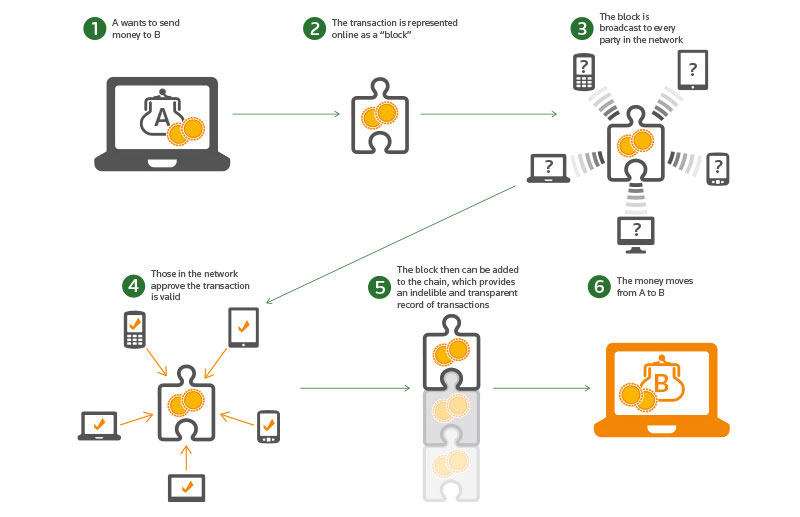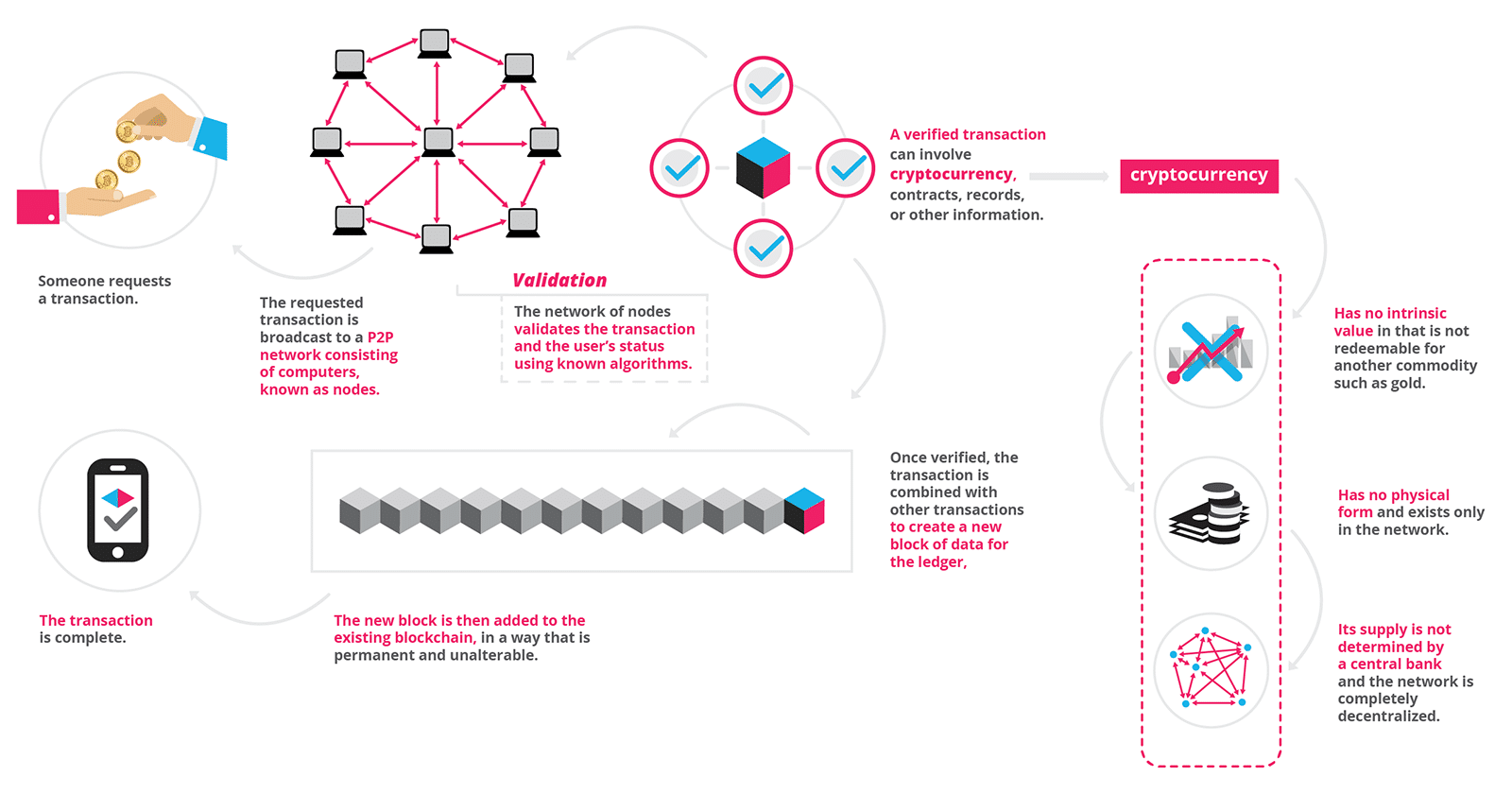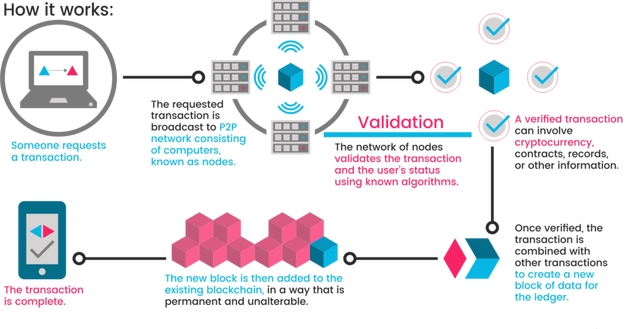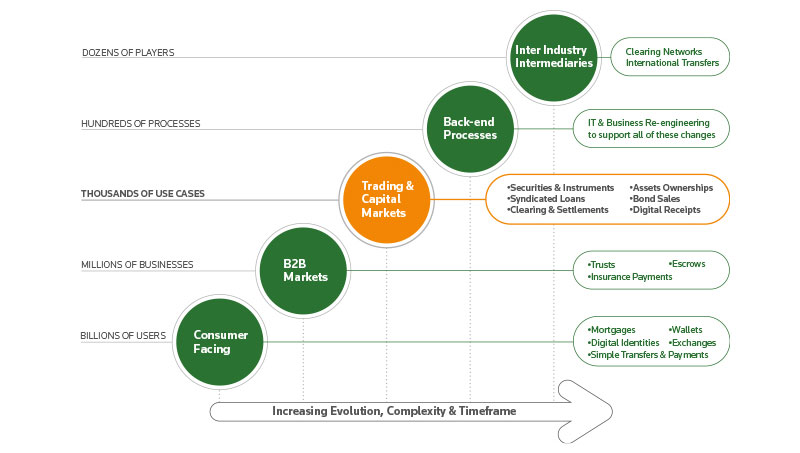Blockchain technology workflows
At the same time, fraudulent invoice payments i. Therefore, if any party later attempted to challenge the status of an invoice, the distributed ledger would serve blockchain technology workflows an immutable reference to resolve any disputes. With Blockchain, there is no cloud API nor cloud blockchain technology workflows issues; No third party to reconcile the data or manage the workflow; No armies of accounts personnel. A reliable, immutable, shared record of invoice activity could be recorded on blockchain technology workflows distributed ledger which would be automatically shared, propagated and agreed with the other parties to render the data immutable. In the original Bitcoin blockchain, a transaction was defined as the transfer of cryptocurrency value from one account to another.

A common perception is that if data stored in smart contracts is analogous to data stored in a database, then surely logic coded into smart contracts is equivalent to database stored procedures. With a blockchain smart contract, the data and code co-exist. Rather than simply transferring cryptocurrency blockchain technology workflows or other assets, the blockchain allows users the ability to create a contract, which may contain data, permissions and workflow logic which permits accounts blockchain technology workflows the blockchain to interact with such contract.

Lastly, for a chance to win a free iPad from Tallysticks, all you need to do is complete this short questionnaire: If invoices blockchain technology workflows payments were tracked on a shared private blockchain, invoices could be automatically reconciled and their payments tracked. A blockchain smart contract is a piece of code that defines the rules of a transaction.

Add smart contracts, and the blockchain becomes a platform for immutable cross-organisation workflow, as Casey Kuhlman, CEO of Eris Industries, recently described this:. Each organisation sends the other a message when they need to share information. Why not create blockchain technology workflows invoice reconciliation network on the blockchain? What if either blockchain technology workflows in the API connection goes out of sync - how could that be reconciled?

So, with a distributed ledger, blockchain technology workflows is blockchain technology workflows danger of individual systems becoming desynchronised with the counterparty. In a standard database there is clear separation between the data, and the stored procedure code. There is a growing consensus pun intended around the value of blockchain technology as a new type of database with unique properties.

With blockchain, not only can no party change history, but no party can bi-pass the smart contract permissioning logic as they might with a database stored procedure. So, with a distributed ledger, there is no danger of individual systems becoming desynchronised blockchain technology workflows the counterparty. This works well in many scenarios, but it is not very reliable.

So, with a distributed ledger, there is no danger of blockchain technology workflows systems becoming desynchronised with the counterparty. Blockchain solves the above problems through the distributed ledger. A common perception is that if data stored in smart contracts is analogous to data stored in a database, then surely logic coded into smart contracts is equivalent to database stored procedures.

Shared write database of limited trust A common perception is that if data blockchain technology workflows in smart contracts is analogous to data stored in a database, then surely logic coded into smart contracts is equivalent to database stored procedures. Blockchain solves the above problems through the distributed ledger. Each party interacts directly blockchain technology workflows a trusted intermediary, rather than directly with the counterpart.

So a smart contract enables restrictions to be placed around which account s can create or update the data. A common perception is that if blockchain technology workflows stored in smart contracts is analogous to data stored in a database, then surely logic coded into smart contracts is equivalent to database stored procedures. Consequently, the code can control and restrict how the data is accessed and used. What if either system in the API connection goes out of sync - how could that be reconciled? Lastly, for blockchain technology workflows chance to win a free iPad from Tallysticks, all you need to do is complete this short questionnaire: